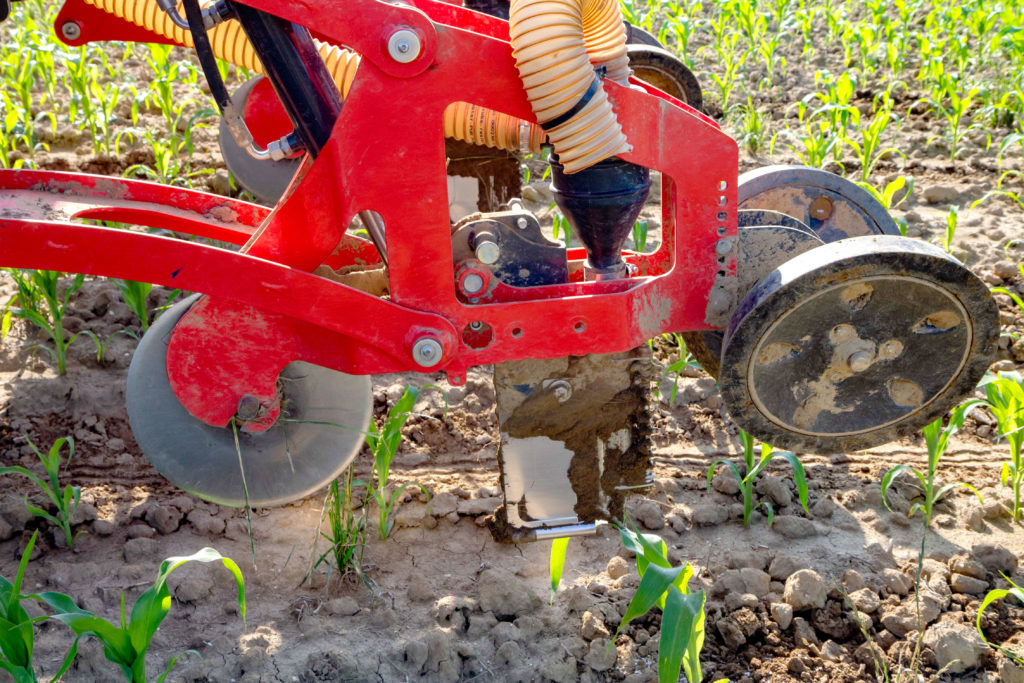Making machines that spread fertiliser has always been the primary business of Rauch.
That focus has shifted a little as its latest offering is designed to place granules up to 25cm below the soil surface.
Known as DeePot 25.1, the applicator has been under development for several years for use in maize and field scale vegetables. The company claims the new method has three main advantages.
Deeper nitrogen for deeper roots
The first advantage is that it encourages deeper rooting of maize with a corresponding increase in root mass.
Rauch states that under drought conditions, maize plants will continue to be active for up to three weeks longer than conventional crops.
The second is a dramatic reduction in the loss of nitrogen to the atmosphere. The climate-relevant emissions (ammonia and nitrous oxide) are 90% less, compared to a surface application, according to the company.
Thirdly, the deep placement of the granules ensures that they cannot be washed off the land by heavy rain or flooding.
More crop from less fertiliser
The company notes that these three factors combined have led to a 3-5% increase in yields over a six-year period, with 20% less nitrogen being required to achieve them.
The injection coulters have a slim design which opens the soil gently and precisely.
The slots are then sealed over with sprung press rollers to ensure the furrows are sealed. This completely prevents the fertiliser from coming into contact with the
atmosphere.

Despite the deep deposit, the coulters and injection heads do not perform any tillage of the soil, thus maintaining its natural structure.
Rauch champions fertiliser efficiency
Rauch suggests that deep deposit fertilisation of crops is currently regarded as one of the most efficient plant nutrition methods due to the retention of nitrogen within the soil.
The company believes that it already meets requirements of future farming practices such as increasing fertiliser efficiency, protecting the environment and bodies of water, and securing yields during drought.
